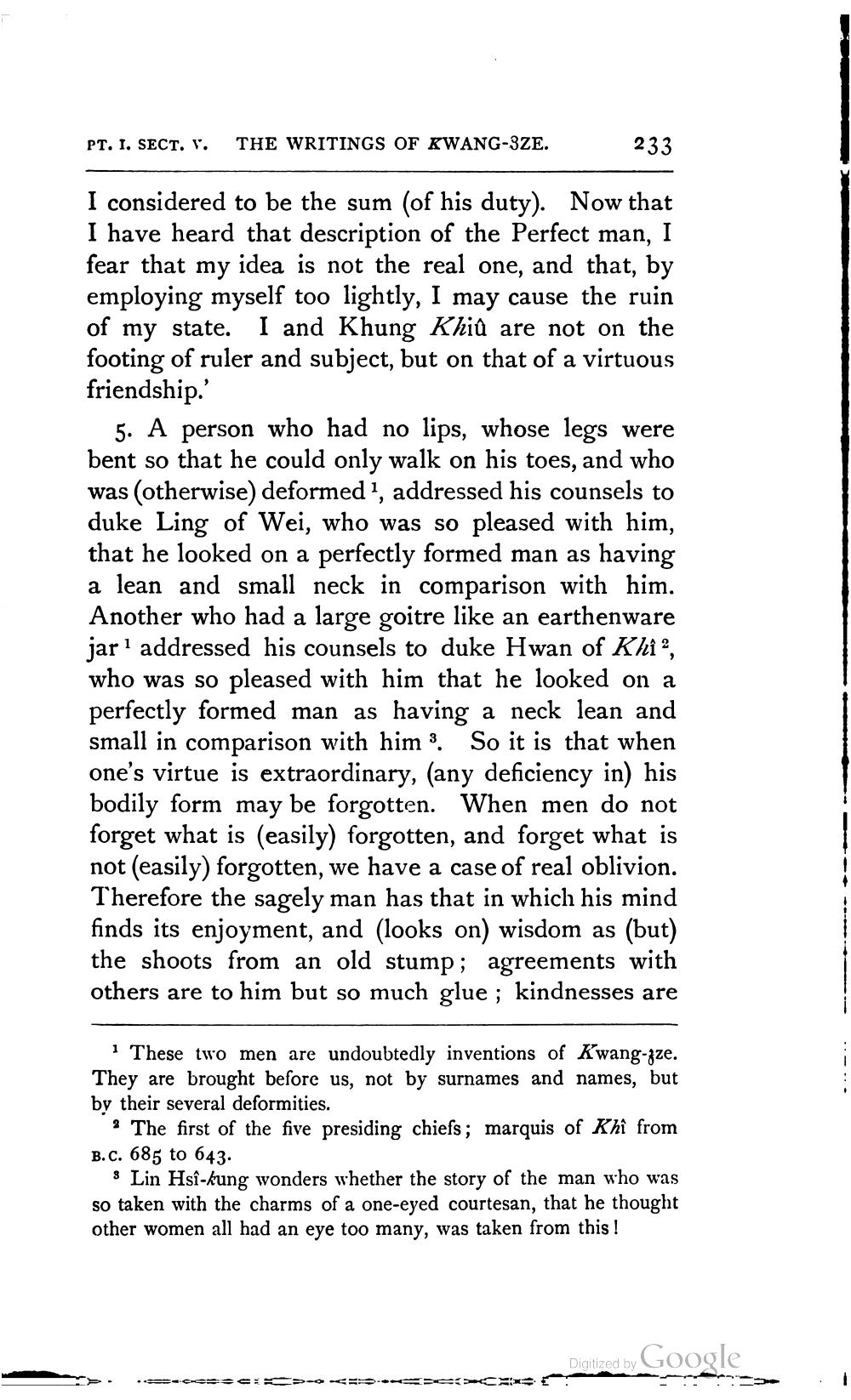________________
PT. 1. SECT. Y.
THE WRITINGS OF KWANG-3ZE.
233
I considered to be the sum (of his duty). Now that I have heard that description of the Perfect man, I fear that my idea is not the real one, and that, by employing myself too lightly, I may cause the ruin of my state. I and Khung Khiû are not on the footing of ruler and subject, but on that of a virtuous friendship.
5. A person who had no lips, whose legs were bent so that he could only walk on his toes, and who was (otherwise) deformed , addressed his counsels to duke Ling of Wei, who was so pleased with him, that he looked on a perfectly formed man as having a lean and small neck in comparison with him. Another who had a large goitre like an earthenware jarl addressed his counsels to duke Hwan of Khi?, who was so pleased with him that he looked on a perfectly formed man as having a neck lean and small in comparison with him ?. So it is that when one's virtue is extraordinary, (any deficiency in) his bodily form may be forgotten. When men do not forget what is (easily) forgotten, and forget what is not (easily) forgotten, we have a case of real oblivion. Therefore the sagely man has that in which his mind finds its enjoyment, and (looks on) wisdom as (but) the shoots from an old stump; agreements with others are to him but so much glue ; kindnesses are
-
-
-
---
-
-
..-
...
1 These two men are undoubtedly inventions of K’wang-zze. They are brought before us, not by surnames and names, but by their several deformities.
9 The first of the five presiding chiefs; marquis of Khî from B.C. 685 to 643.
3 Lin Hsî-kung wonders whether the story of the man who was so taken with the charms of a one-eyed courtesan, that he thought other women all had an eye too many, was taken from this !
Digitized by Google




